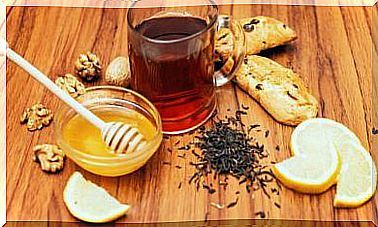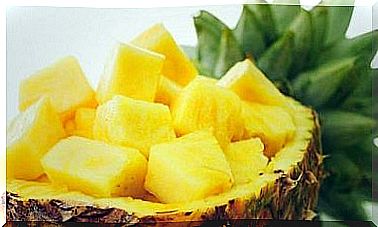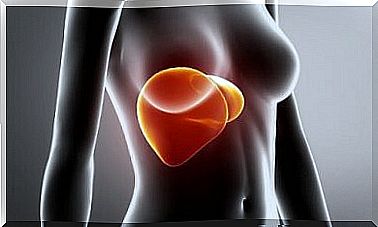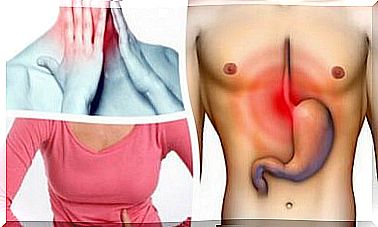6 Diets For Irritable Bowel Syndrome

Do you suffer from irritable bowel syndrome? If so, you need to change your eating habits to keep your symptoms under control. In this article, we will discuss 6 types of diets for irritable bowel syndrome.
This disease is more common in women under the age of 45. But there are also men and the elderly who suffer from it. The disease, which affects the large intestine, can cause abdominal colic, gas, bloating, constipation and diarrhea.
6 diets to relieve irritable bowel syndrome
1. The FODMAP diet can help relieve irritable bowel syndrome
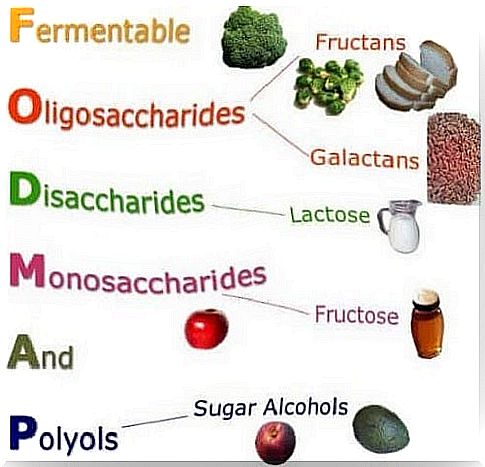
Among the many methods that can help relieve irritable bowel syndrome, the FODMAP diet is one of the most popular. This is a diet based on limiting the consumption of short-chain carbohydrates: oligosaccharides, disaccharides, monosaccharides and fermentable polyols.
How does reducing the consumption of these foods help relieve irritable bowel syndrome? Well, it’s very simple: many people do not absorb these components through the small intestine, so they end up in the colon, where they feed bacteria and cause annoying symptoms.
Some research suggests that avoiding the above carbohydrates can reduce discomfort by preventing bacteria from fermenting food. But there are no conclusive studies that can prove this theory.
At the beginning of 2019, the Spanish Society of Digestive Pathology announced that, after the first phase of severe restriction in the FODMAP diet, for 4 to 8 weeks, you must reintroduce the restricted food groups one by one. In this way, you can check your tolerance for each ingredient and you can create a personalized diet as restrictive as possible.
Note: Due to the restriction of important foods, this diet should be adopted under specialized medical supervision. The possible benefit-risk balance must be assessed on a person-by-person basis.
If your doctor suspects lactose intolerance, you should partially exclude dairy products from your diet. You can do this for up to 2 months. Then, you will reintroduce the food and you will observe the body’s reactions.
In many cases, problems with the digestion of dairy products can lead to symptoms of irritable bowel syndrome. Therefore, a lactose-free diet could be a good option to improve the patient’s condition.
3. Gluten-free diet

According to various studies, approximately 30% of people with celiac disease have previously been diagnosed with IBS. For this reason, in case of suspicion of sensitivity or allergy to gluten, the doctor may decide to exclude gluten-containing foods from the diet. As a result, he will be able to tell if gluten has triggered IBS symptoms.
If you suffer from irritable bowel syndrome with chronic constipation, some experts may recommend eating foods rich in insoluble fiber. They help to speed up the intestinal transit of the food you eat. This diet includes a lot of vegetables and whole grains.
If the problem is alternating episodes of constipation and diarrhea, you should resort to regular intake of soluble fiber. Soluble fiber is present in foods such as oats, barley, seeds and fruits.
5. Diet for diarrhea

Diarrhea tends to be a very common symptom in people with irritable bowel syndrome. It also requires special attention due to possible problems with malabsorption of essential nutrients.
If you have diarrhea on a regular basis, you should avoid drinking coffee and alcohol, as both are intestinal stimulants. The same goes for dairy. However, you should include other sources of calcium in your diet, such as soy milk.
It is impossible to make a list of recommended foods for all people suffering from irritable bowel syndrome. The diet must be personalized for each individual, because the intestinal response of each patient is different, and the triggers of symptoms are also different.
Below, we’ll show you a selection of foods that professionals recommend, restrict, and often ban. This list is provided by the Endocrinology and Nutrition Service of the University Clinical Hospital of Valladolid (Castilla y León, Spain).
- complicated
- White fish
Restricted foods
- Fatty fish
Do not forget
